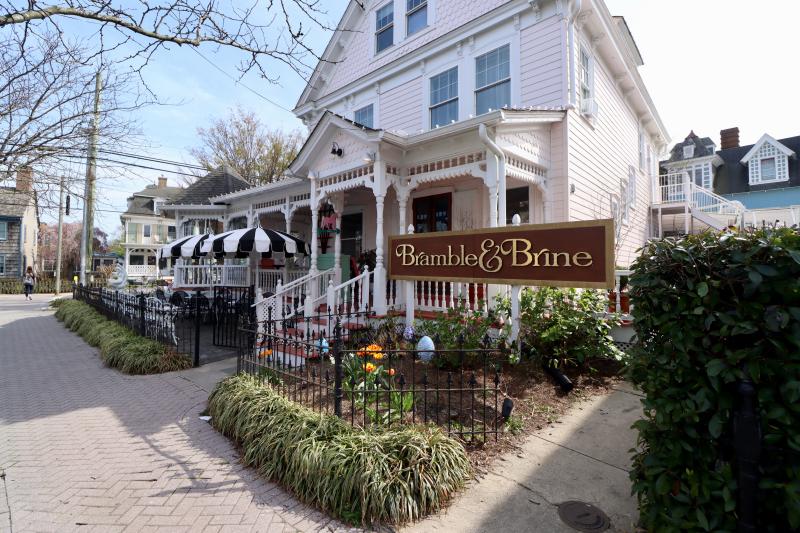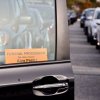Lewes approves outdoor ambient music ordinance
Lewes Mayor and City Council has approved an ordinance that will allow restaurants with outdoor patio licenses to play recorded, ambient music.
However, the panel gave the ordinance a three-year trial. It goes into effect June 1 of this year, but will sunset June 1, 2027, unless council votes to extend it.
“If it becomes an awful problem, we can repeal it before that,” said Deputy Mayor Khalil Saliba, who strongly backed the ordinance.
The vote at the April 8 mayor and council meeting was 4-1. Councilman Joe Elder voted against the measure.
Many residents who live within earshot of the downtown business district were opposed, claiming the music will shatter the city’s quiet evening vibe.
Restaurant owners have said they need outdoor music to give them a competitive edge.
Saliba expressed his frustration at the process of getting a balanced ordinance.
“This is the first request we’ve had from businesses in the last three years on this council. I think this is a reasonable request. We’ve made substantial changes to address concerns,” Saliba said. “I respect residents; you’re the ones who make this community great. But, our businesses matter too.”
The ordinance allows restaurants with outdoor patio and liquor licenses to apply for a permit from the Alcoholic Beverage Control Commissioner to play recorded, ambient music. It does not allow live music.
The measure would apply to only six to eight restaurants in the city.
“It troubles me that our community has been divided by this issue,” Elder said. “This is a win-lose situation. I wish we could just stop it right now.”
The ordinance has the following restrictions:
• Maximum of 65 decibels, measured at the source
• Speakers no larger than 10 inches; must face directly into the establishment
• Permitted between 11:30 a.m. and 9:30 p.m.
• Business must have approval from the property owner, if the business is leased
• The permit is non-transferable.
Mayor Andrew Williams said he consulted with Fabrice Veron, an acoustics expert and dean of the University of Delaware’s College of Earth, Ocean and Environment.
“[He] said if you play 65 decibels, there is no way it gets amplified farther away from the source. Physics does not allow that,” Williams said.
Even though the ordinance start date is June 1, there would be a lengthy process before any restaurant could flip the switch.
A restaurant owner would have to apply to the ABCC for an ambient music permit. If approved, ABCC would have to post public notice of the request for 14 days within 1,000 feet of the applicant’s establishment. If 10 or more people request a public hearing, the ABCC would hold one.
If no significant opposition arises, the applicant would then be able to apply for a city permit to play outdoor, recorded music.
The restaurant would then install the speakers and have to pass a city inspection confirming the music is at 65 decibels maximum.
Council included an amendment in the ordinance aimed at clarifying enforcement.
Currently, Lewes Police Department and law enforcement agencies in surrounding communities allow officers to use their judgment when handling noise complaints. It is legally known as the “reasonable person” standard.
Saliba said police in Lewes and other local towns do not use decibel meters because the readings are unreliable.
Councilman Tim Ritzert supported the friendly amendment that gives police the option to use both.
“If there is a reason for police to respond to a complaint, I think it should be measurable, that measure is documented and it helps police do their job,” Riitzert said.
A business owner could lose their liquor license for repeated violations.
Bill Shull has been covering Lewes for the Cape Gazette since 2023. He comes to the world of print journalism after 40 years in TV news. Bill has worked in his hometown of Philadelphia, as well as Atlanta and Washington, D.C. He came to Lewes in 2014 to help launch WRDE-TV. Bill served as WRDE’s news director for more than eight years, working in Lewes and Milton. He is a 1986 graduate of Penn State University. Bill is an avid aviation and wildlife photographer, and a big Penn State football, Eagles, Phillies and PGA Tour golf fan. Bill, his wife Jill and their rescue cat, Lucky, live in Rehoboth Beach.






















































